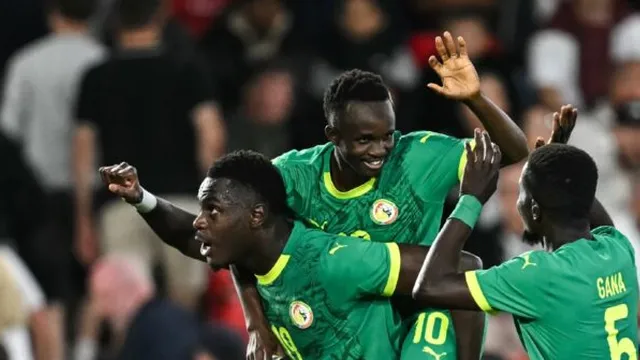
Thomas Tuchel suffers first defeat as England manager against Senegal
2025-06-12 03:53- England lost to Senegal 3-1 in a friendly match, marking a significant defeat under Thomas Tuchel's management.
- The match exposed critical defensive flaws, leading to England being booed off the pitch by their home fans.
- Despite the loss, Tuchel stressed there is no need for panic, as England prepares for future competitive matches.
Express your sentiment!
Insights
In a shocking friendly match held in Nottingham, England's football team, under new manager Thomas Tuchel, faced a surprising 3-1 defeat against Senegal. The match took place approximately a year before the World Cup, highlighting important concerns for the team as they prepare for global competition. England had recently achieved qualification victories but their performance against Senegal exposed significant weaknesses, particularly in defense. Harry Kane opened the scoring early, but a series of defensive lapses allowed Senegal to capitalize, marking a dismal outing for the English side. Tuchel, despite the defeat, stated that there was no need to panic, insisting that their preceding victories in qualification reflect their potential for future success. However, the loss raised alarms about the team's readiness and tactical approach, especially considering it accounted for Tuchel's first defeat as England boss. The game saw England booed off the pitch by their own fans, a clear indication of the frustration building among supporters about recent performances. Tuchel's decision to make ten changes from their last game against Andorra proved disastrous, with players unable to adapt to the intensity of international play against a determined Senegalese side. Defensively, the English players struggled, allowing Senegal to take the lead with ease. Harry Kane expressed his disappointment with the officiating, feeling that certain moments could have changed the game's momentum. Despite this, he maintained that the defeat could serve as a valuable lesson for the team. Players like Trevoh Chalobah and Curtis Jones noted the lack of desire compared to their opponents, underscoring issues of motivation and focus. In the aftermath of the match, questions arose concerning Tuchel's coaching methods, as many fans and analysts ponder whether the latest defeat could shift the dynamics of the team heading into the World Cup. With the upcoming World Cup year rapidly approaching, England must address these shortcomings and work towards a more cohesive and competitive squad. The loss serves as a wake-up call for Tuchel and the players, who must regroup and prepare for the next set of critical matches that will dictate their prospects on the world stage.
Contexts
The implementation of Video Assistant Referee (VAR) technology in football has significantly transformed the way the game is officiated, often leading to controversial discussions regarding its impact on match outcomes and the overall viewing experience. Introduced to enhance decision-making accuracy, VAR aims to rectify clear and obvious errors in four key areas: goals, penalties, direct red card incidents, and mistaken identity. Proponents argue that VAR helps to ensure fair play, while critics point to disruptions in match flow and the emotional responses elicited from fans and players alike as significant drawbacks. As football evolves in response to these technological advancements, it is crucial to examine how VAR decisions influence both the game's dynamics and stakeholder perceptions. Data shows that since VAR's introduction, there has been a notable increase in the number of penalties awarded, suggesting that the technology empowers referees to make more informed decisions in high-stakes scenarios. A survey conducted among fans and players indicates that while many appreciate the intent behind VAR, there remains a prevalent concern regarding its execution. Critics highlight instances where VAR reviews have led to lengthy stoppages, undermining the fluidity of the match and resulting in frustrations among spectators awaiting resolutions. Additionally, the interpretation of what constitutes a 'clear and obvious error' has produced varying judgments, leading to further confusion regarding the application of this technology. Moreover, the impact of VAR decisions on match outcomes has been a subject of intense scrutiny. Evidence suggests that teams have experienced shifts in their performance dynamics stemming from VAR interventions, with some benefiting from overturned decisions while others find themselves at a disadvantage. Research indicates that following the implementation of VAR, teams have adjusted their strategies, often displaying heightened caution in defensive setups to mitigate the risk of penalties. This shift in approach reveals the psychological aspect of VAR technology, as players and coaches adapt to the new framework established by its use. Ultimately, the introduction of VAR has ignited a crucial conversation around officiating in football and the balance between technological assistance and human judgment. While the objective remains to foster fairness and integrity within the sport, the challenges associated with its integration must be addressed. Stakeholders must continue to evaluate the effectiveness of VAR and refine its application, ensuring it enhances rather than detracts from the passion that defines football. Moving forward, a collaborative effort between governing bodies, officials, and fans will be essential in navigating the complexities of VAR, striking a balance between innovation and preserving the unique essence of the beautiful game.